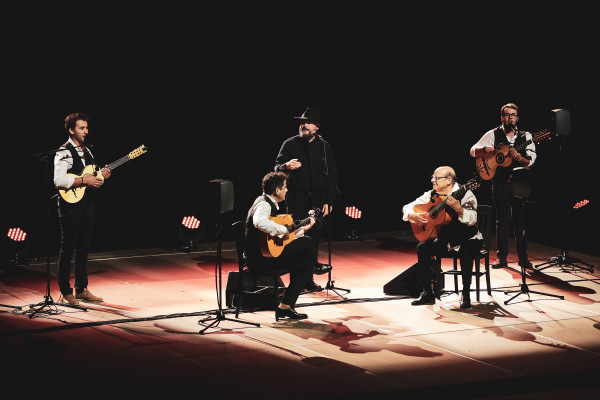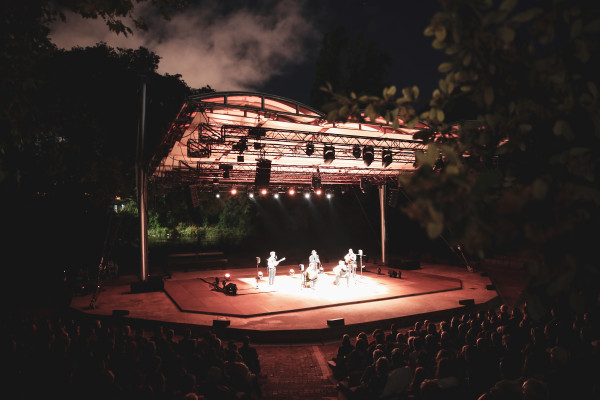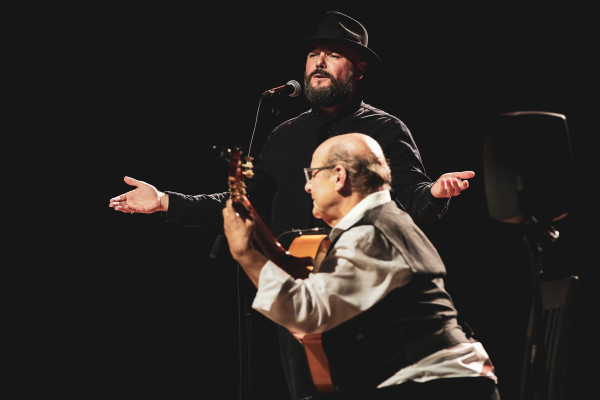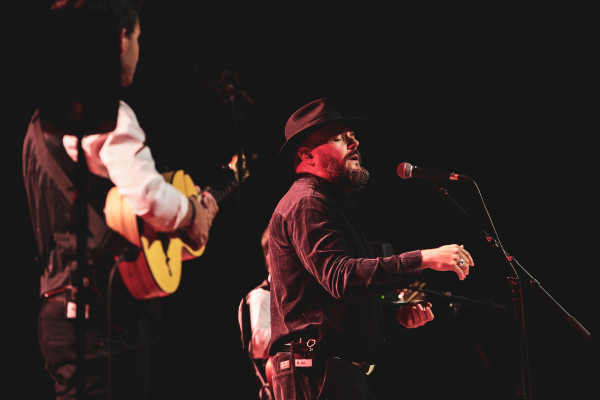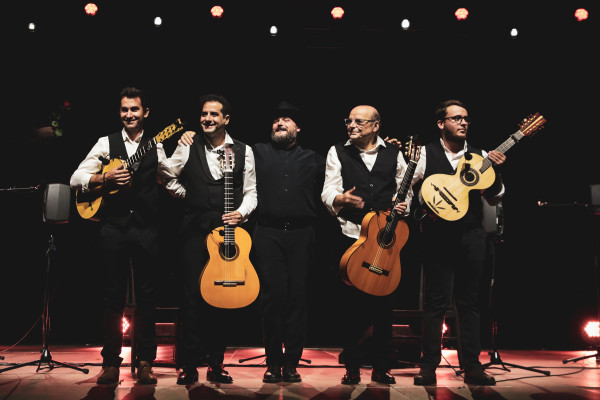Commissioned by BoCA, this project brings together Niño de Elche — a singular figure in the Spanish music and performance scene who identifies as “ex-flamenca” — and Pedro G. Romero — a visual artist and researcher, winner of Spain’s 2024 National Award for Plastic Arts — in a work presented in two formats: a conference-performance with Pedro G. Romero, and a concert with Niño de Elche and folk musicians from the Iberian “Stripe”. At a time when folk culture still bears the traces of its instrumentalization by the Iberian dictatorships, this project recovers its original meanings: hybrid , fluid, permeable to others. During a period of research and writing in the Iberian border region, between Portugal and Spain, Pedro G. Romero and Niño de Elche activated collaborative practices that challenge the fossilised forms of tradition and expose its friction with the present, transporting the two between the fandango and Portuguese tango, and the viola campaniça and Sephardic liturgy. More than collection or reinterpretation, the project acts as an artistic and political gesture: restoring folk culture’s power as a site of hybridisation, conflict and reinvention.
In the ‘stripe’ that separates — or unites — the south of Portugal, Huelva and Extremadura, sound operates as a link in a chain between geographies and histories. There we hear the cante alentejano with its viola campaniças, the fandango cané in Alosno chanted by groups of men over the incessant strumming of guitars, or even the luso-extremaduran tangos and jaleos handed down by Portuguese Romani communities. It is in this permeable territory that Niño de Elche and Pedro G. Romero have developed the performative concert “El Cante Rasgueado”, through a process of on-site research with local musicians and historians.
More than collection or reinterpretation, the project acts as a gesture of reinvention: mapping the lines of continuity and friction between the folk practices coexisting at the Iberian frontier, opening space for new forms of listening, appropriation and connection. In this context, singing and strumming are not only technical or expressive gestures — but collective acts, ways of being with others. From this starting point, Niño del Elche and Pedro G. Romero reactivate the community potential of folk culture in a brand-new concert with musicians challenging traditional forms.
Niño de Elche, Pedro G. Romero
El cante rasgueado
Concert
4 – 11 October
Lisboa – Fundação Calouste Gulbenkian / Anfiteatro ao ar livre, Museo del Traje Biennial 2025 Concert
- Sessions
04.10.25
Fundação Calouste Gulbenkian / Anfiteatro ao ar livre, Lisboa
20:00
World premier
11.10.25
Museo del Traje, Madrid
18:00, 21:00
- Concept
- Niño de Elche and Pedro G. Romero
- Direction and interpretation
- Niño de Elche
- Interpretation
- David Pereira (campaniça guitar), Guilherme Colaço (campaniça guitar), Miguel Vargas (flamenco guitar), Juan Vargas (flamenco guitar)
- Sound Design
- Emilio Pascual
- Executive production
- Filipe Metelo
- Commission and Production
- BoCA - Biennial of Contemporary Arts (Lisboa)
- Co-production
- CAM - Centro de Arte Moderna Gulbenkian (Lisbon), Museo Nacional del Traje (Madrid)
- Support
- Portugal-Spain Cross Cultural Program - 50 years of democracy; Ministerio para la Transición Ecológica y el Reto Demográfico; Alentejo Regional Coordination and Development Commission; Spanish Cultural Action (AC/E) - Program for the Internationalization of Spanish Culture (PICE)
- Duration and classification
- 50 min, M/6
- Obs.
-
Lisbon, CAM/FCG: €10
Madrid, Museo del Traje: Free admission, subject to reservation and space availability
